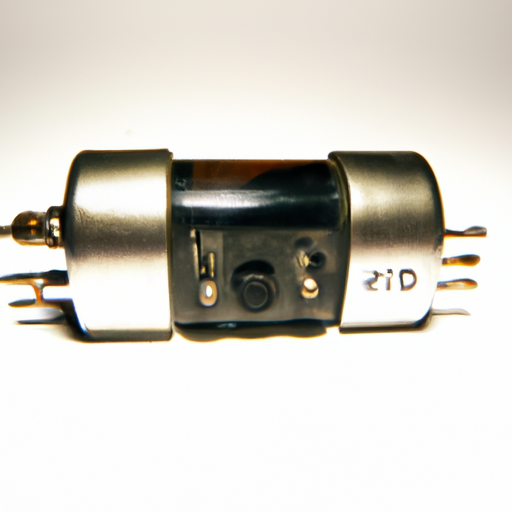

Amplifiers are essential components in audio systems, used to increase the amplitude of a signal. They are commonly found in a variety of devices, including home stereo systems, car audio systems, and musical instruments. In order to ensure that amplifiers meet certain quality and performance standards, there are specific product standards that manufacturers must adhere to. These standards are put in place to ensure that amplifiers are safe, reliable, and provide high-quality sound reproduction.

Another important product standard for amplifiers is the European Union's CE marking. This marking indicates that the product complies with all relevant European Union directives and regulations. In order to receive the CE marking, amplifiers must meet certain performance and safety requirements, as well as environmental standards. This ensures that amplifiers sold in the European Union are of high quality and do not pose a risk to consumers or the environment.
In addition to safety and performance standards, there are also standards that govern the quality of sound reproduction in amplifiers. One such standard is the Total Harmonic Distortion (THD) rating. THD measures the amount of distortion introduced by an amplifier when reproducing a signal. Lower THD values indicate a cleaner, more accurate sound reproduction. Amplifiers with low THD ratings are considered to provide high-quality sound and are preferred by audio enthusiasts.
Another important standard for sound quality is the Signal-to-Noise Ratio (SNR). SNR measures the ratio of the signal level to the noise level in an amplifier. A higher SNR indicates that the amplifier produces a cleaner, more accurate sound with less background noise. Amplifiers with high SNR ratings are considered to provide superior sound quality and are often preferred for professional audio applications.
In addition to safety and performance standards, there are also standards that govern the efficiency and power consumption of amplifiers. The Energy Star program, for example, sets energy efficiency standards for electronic devices, including amplifiers. Amplifiers that meet Energy Star requirements are more energy-efficient and consume less power, reducing their environmental impact and saving consumers money on their electricity bills.
Overall, product standards for amplifiers cover a wide range of considerations, including safety, performance, sound quality, and energy efficiency. By adhering to these standards, manufacturers can ensure that their amplifiers meet the highest quality and performance requirements, providing consumers with reliable, safe, and high-quality audio equipment. Whether you are a casual listener or a professional audio engineer, choosing an amplifier that meets these standards is essential to ensure a great listening experience.
Amplifiers are essential components in audio systems, used to increase the amplitude of a signal. They are commonly found in a variety of devices, including home stereo systems, car audio systems, and musical instruments. In order to ensure that amplifiers meet certain quality and performance standards, there are specific product standards that manufacturers must adhere to. These standards are put in place to ensure that amplifiers are safe, reliable, and provide high-quality sound reproduction.

Another important product standard for amplifiers is the European Union's CE marking. This marking indicates that the product complies with all relevant European Union directives and regulations. In order to receive the CE marking, amplifiers must meet certain performance and safety requirements, as well as environmental standards. This ensures that amplifiers sold in the European Union are of high quality and do not pose a risk to consumers or the environment.
In addition to safety and performance standards, there are also standards that govern the quality of sound reproduction in amplifiers. One such standard is the Total Harmonic Distortion (THD) rating. THD measures the amount of distortion introduced by an amplifier when reproducing a signal. Lower THD values indicate a cleaner, more accurate sound reproduction. Amplifiers with low THD ratings are considered to provide high-quality sound and are preferred by audio enthusiasts.
Another important standard for sound quality is the Signal-to-Noise Ratio (SNR). SNR measures the ratio of the signal level to the noise level in an amplifier. A higher SNR indicates that the amplifier produces a cleaner, more accurate sound with less background noise. Amplifiers with high SNR ratings are considered to provide superior sound quality and are often preferred for professional audio applications.
In addition to safety and performance standards, there are also standards that govern the efficiency and power consumption of amplifiers. The Energy Star program, for example, sets energy efficiency standards for electronic devices, including amplifiers. Amplifiers that meet Energy Star requirements are more energy-efficient and consume less power, reducing their environmental impact and saving consumers money on their electricity bills.
Overall, product standards for amplifiers cover a wide range of considerations, including safety, performance, sound quality, and energy efficiency. By adhering to these standards, manufacturers can ensure that their amplifiers meet the highest quality and performance requirements, providing consumers with reliable, safe, and high-quality audio equipment. Whether you are a casual listener or a professional audio engineer, choosing an amplifier that meets these standards is essential to ensure a great listening experience.